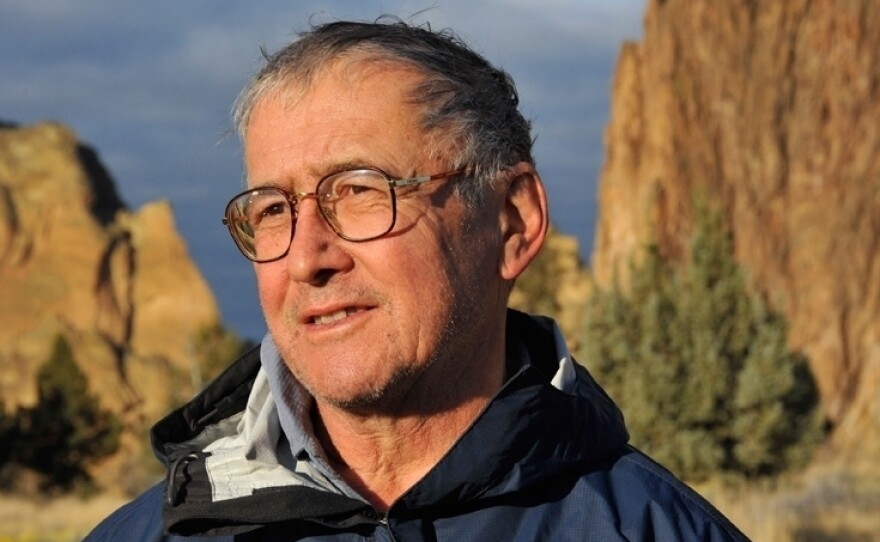
Everett Ruess could have been one of this country's greatest wilderness writers, a poet and author on a par with John Muir or Edward Abbey.
But we'll never know for sure, because Ruess disappeared without a trace in November 1934. With two burros trailing behind him, he left the remote southern Utah town of Escalante, heading down the desolate Hole-in-the-Rock Trail towards the Colorado River in search of his favorite things: beauty and solitude.
About a week down the trail, Ruess ran into two sheepherders and camped with them for a couple of nights.
And then, author David Roberts tells weekends on All Things Considered host Guy Raz, Ruess rode off into a nearby canyon and vanished from the face of the Earth.
Roberts is the author of the new book Finding Everett Ruess: The Life and Unsolved Disappearance of a Legendary Wilderness Explorer.
He says Ruess was only 20 when he disappeared, but he had spent the last five years of his life making grueling journeys across California and the Southwest.
"He had already produced an amazingly precocious body of artwork," Roberts says. "He did watercolors and block prints which are quite accomplished for a teenager, and he wrote passionate poems, diaries and letters to his parents and friends."
Ruess' parents preserved all of their son's work, and once it became clear he wasn't coming back, they began to think about publishing it.
"They were determined to guarantee him some kind of posthumous fame," Roberts says, though that fame remained elusive until author Jon Krakauer devoted a chapter to Ruess in his book Into the Wild, about Christopher McCandless, another young, ill-fated explorer.
The mystery of Everett Ruess only deepened in the decades after his death. Hucksters preyed on his family, Roberts says, inventing spurious sightings and asking for money to conduct searches that probably never happened.
And then, in 2008, Roberts got a phone call from a friend, a wilderness guide, who told him there was a possibility that Ruess' body had been found.
"I thought, at first, there's no way it's possible," Roberts says. "But more and more, my friend ... said, you gotta come out here and look at it."
A young Navajo man had come forward with an amazing story: his grandfather, Aneth Nez, had witnessed men from the Ute tribe kill a young white traveler, sometime in the 1930s. Nez had retrieved the body, buried it in secret, and kept quiet about it for decades. Could this be Ruess?
"I was skeptical until the DNA came back with a perfect match the first time through," Roberts says. "And we announced it to the world."
But that announcement turned out to be premature. Further testing showed that the bones were not those of Ruess.
"It was truly devastating, not just to me but to everybody involved," Roberts says. "And beyond devastating, we felt a deep sense of shame, because it turned out we had dug up a Native American and not Everett, and that's a serious desecration."
The mystery bones were reburied in an undisclosed location, never to be disturbed again. But Roberts says he believes Nez probably did witness the murder of Ruess, and searchers simply found the wrong body. In which case, Ruess is still out there somewhere, buried in the wilderness he loved and died for.
Copyright 2023 NPR. To see more, visit https://www.npr.org. 9(MDAzMjM2NDYzMDEyMzc1Njk5NjAxNzY3OQ001))






